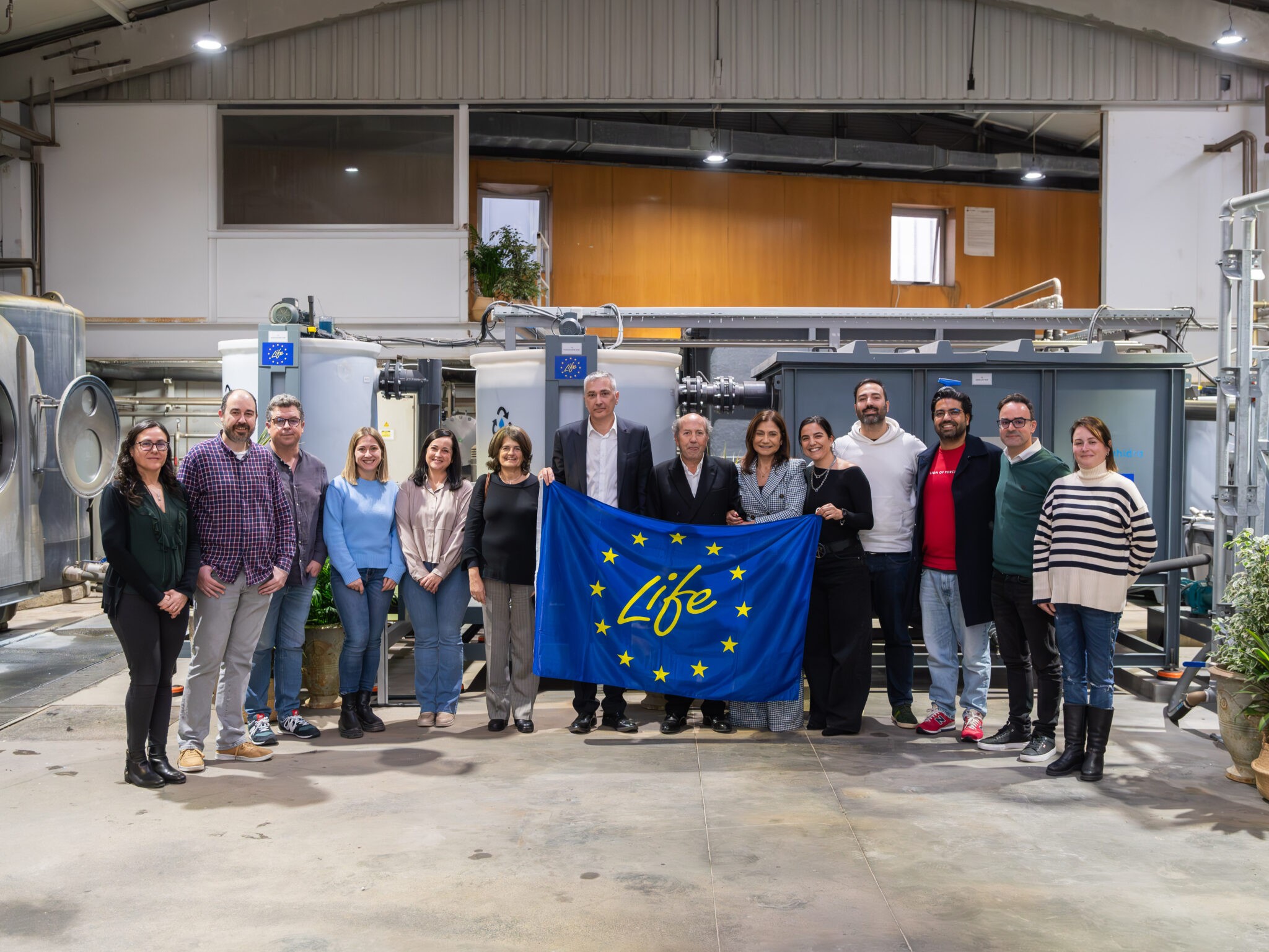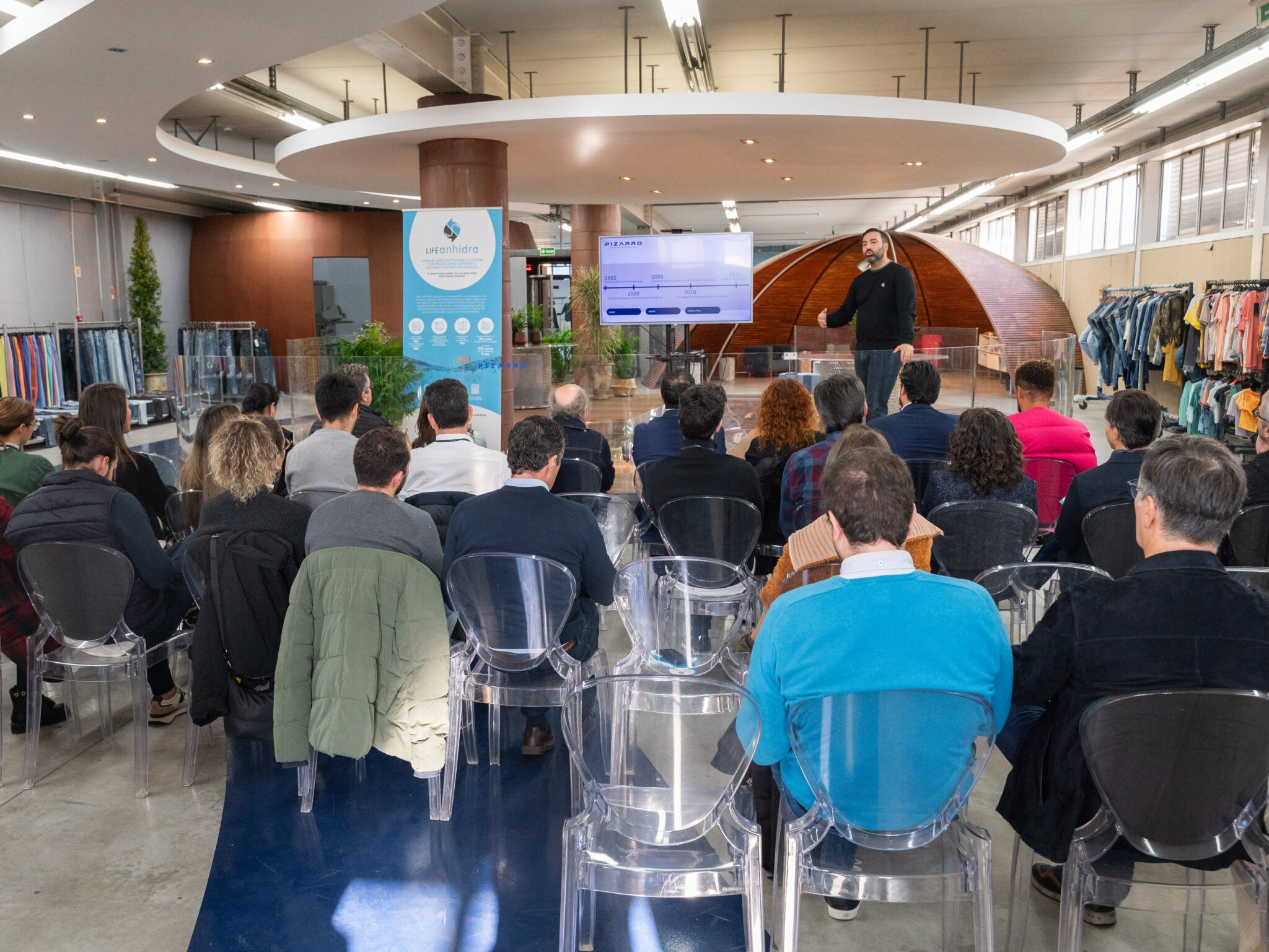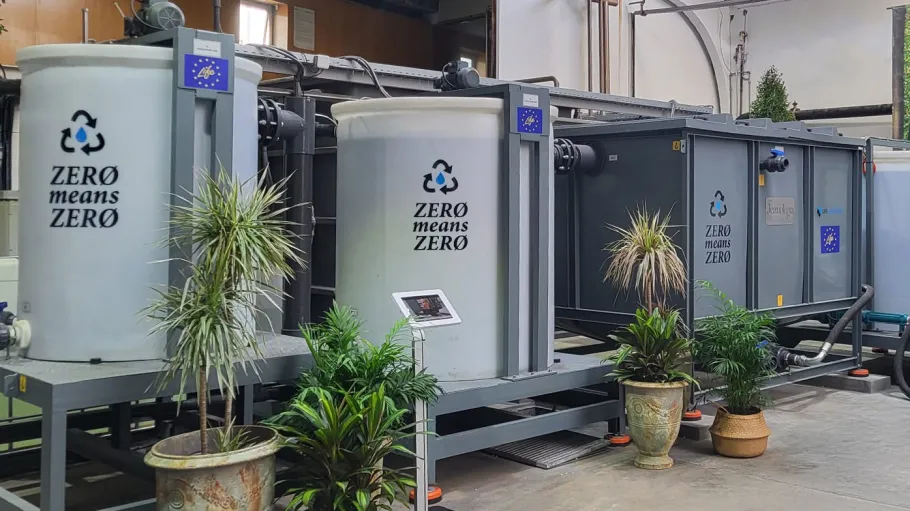The European LIFE ANHIDRA project marks a milestone in sustainability with the unveiling of its innovative closed-loop system for treating and reusing textile wastewater. During the event held at the Pizarro facility in Guimarães (Portugal), ANHIDRA was introduced as a revolutionary solution transforming water management in the textile industry. The event brought together the project’s key partners: Jeanologia, the Spanish company responsible for designing and building ANHIDRA and a global leader in sustainable technologies for the textile sector; AITEX Research & Innovation Center; and Portuguese textile company Pizarro, accompanied by representatives from the European Commission.

A key solution to reduce the textile industry’s water footprint
The textile industry consumes an estimated 93 billion m³ of water annually, accounting for 4% of global water use. ANHIDRA addresses this critical challenge by regenerating up to 95% of the water used in textile washing and finishing processes, returning it in optimal conditions for reuse.
With zero discharges, zero contamination, and no complex treatments, ANHIDRA stands out with exceptional results:
- 92% reduction in water consumption
- 98% reduction in wastewater generation
- Up to 15% reduction in energy consumption
ANHIDRA not only minimizes environmental impact but also reduces the operational costs associated with traditional water management, making it a competitive and eco-friendly solution.

Innovation and circular economy
Beyond water regeneration, ANHIDRA focuses on reusing textile waste. In collaboration with AITEX, the project is exploring how to transform fibrous fragments collected during water treatment into new textile products, reinforcing the project’s commitment to the circular economy.
“ANHIDRA not only transforms water management in the textile industry but also proves that sustainability and competitiveness can go hand in hand. This system sets a new global benchmark,” said Vicent Albert, Jeanologia’s Product and Technology Director.

Launch and demonstration of the ANHIDRA system
During the event, attendees observed the various stages of the system in action at the Pizarro pilot plant. Following the demonstration, a coffee-networking session allowed project partners to exchange ideas about the technical, environmental, and economic impact of the technology.
The project plans to implement ANHIDRA in at least 36 industrial facilities over the next three years, aiming to expand to 100 systems internationally within five years. This is expected to save up to 12.34 million m³ of water annually.
Funded by the European Union’s LIFE program, LIFE ANHIDRA demonstrates how business cooperation and technological innovation can provide effective solutions to major environmental challenges. “Our goal is to make this technology accessible to the entire textile industry, contributing to a more sustainable future for fashion and the planet,” concluded Vicent Albert, project coordinator.
This project has received funding from the European Union’s LIFE program (grant agreement no. 101074372). The content of this document is the sole responsibility of the authors and does not necessarily reflect the position of the European Union, CINEA, or the corresponding funding program.

